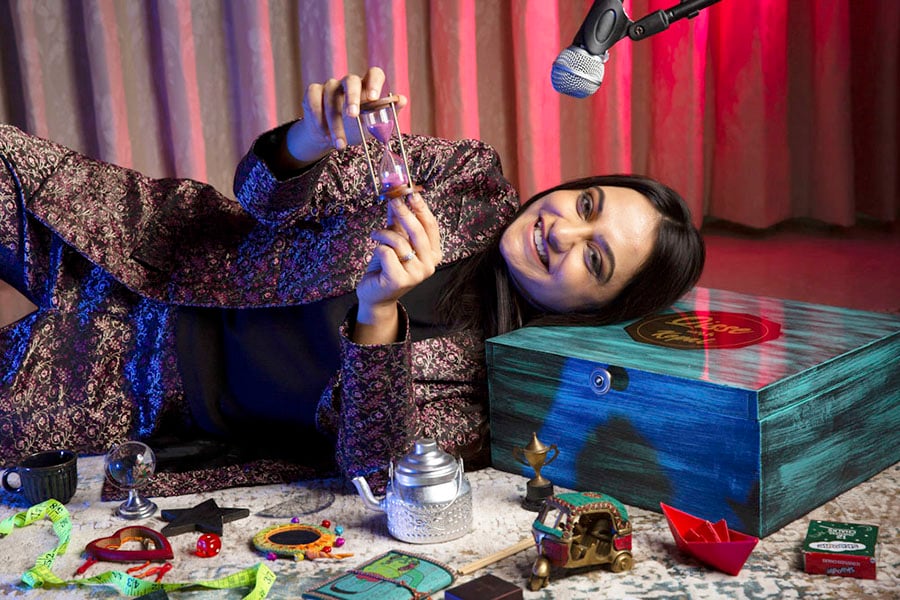Tape A Tale: How Kopal Khanna's platform is enabling creative storytellers
Kopal Khanna's platform Tape A Tale provides a space for creative storytellers to tell their stories, while also offering brand collaborations and artist management
 Kopal Khanna, Co-founder, Tape A Tale
Image: Madhu Kapparath
Kopal Khanna, Co-founder, Tape A Tale
Image: Madhu Kapparath
It all started as a passion project. Kopal Khanna, who worked as communications head at a company, had always been interested in storytelling, In 2017, she started an audio story website Tape A Tale, a platform for crowd sourced stories. To increase its reach, she decided to organise an offline event, a curated show of eight storytelling performances by artists with two open mics for anyone from the audience who wanted to perform. The show, in Mumbai, was also meant to give a platform to creative storytellers, from poets to performing artists.
The show was a success, and she organised more shows and events, including Open Mic events. “It was not only a challenge to find storytellers to perform, but the concept of storytelling and Open Mic itself was a foreign concept that took some time for Indians to adapt to and enjoy,” says Khanna. But as more and more people stepped up to perform their writings, the audience too has grown, and seven years later, Khanna’s Tape A Tale, which she co-founded with Ali Hussen, has evolved and grown into a full-fledged business with artist management, brand collaborations and an online audience of 2.47M YouTube subscribers.
Under its umbrella, the company has spoken word artists like Amandeep Singh, Yahya Bootwala and Priya Malik, covering stories about everything from sex education and feminism to love stories and slice of life tales. Spoken poetry artists Amandeep Singh and Nayab Midha recently concluded a tour across Australia. The tour was under the event IP Manch, which is a space of fusion between storytelling and poetry. While artist Nidhi Narwal, poet, storyteller and podcaster, recently did an India tour with Tape A Tale.
***
Starting a new venture in a new niche is not easy. “Now, when I talk about Kommune or Tape A Tale, you can understand how it works and that it is an existing industry but back then, in 2017, there were hardly any platforms,” says Khanna adding that though storytelling and spoken word performances are now popular in India the lack of such platforms or spaces back then meant that even explaining the idea of a business around stories to people was difficult. “Even to my family, it was a bizarre idea that you're going to run a company that is going to be all around stories,” says Khanna.

















